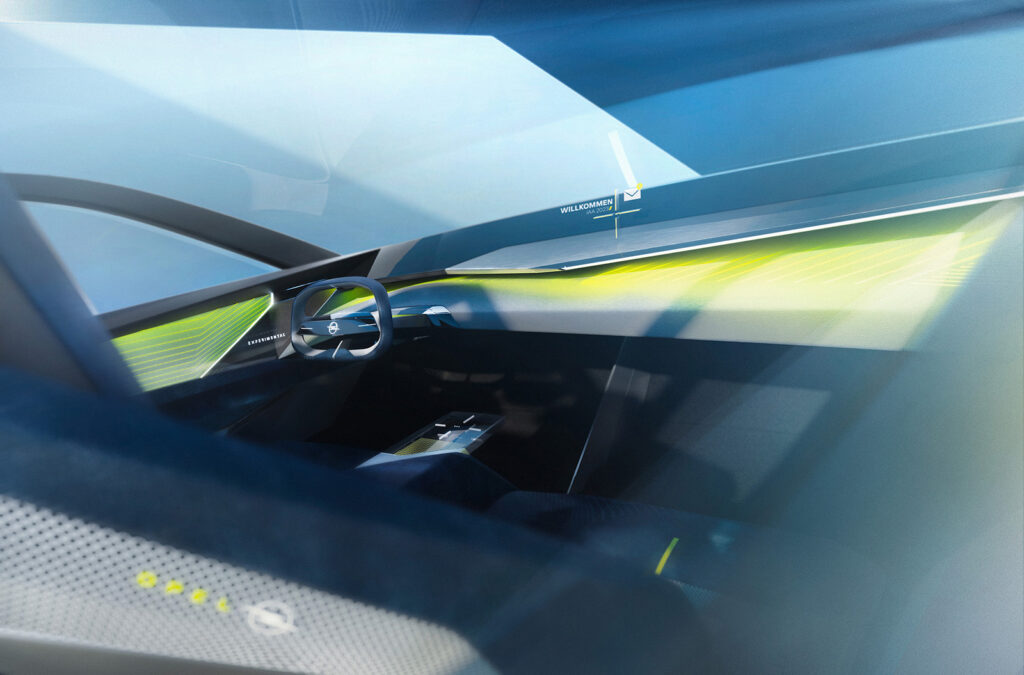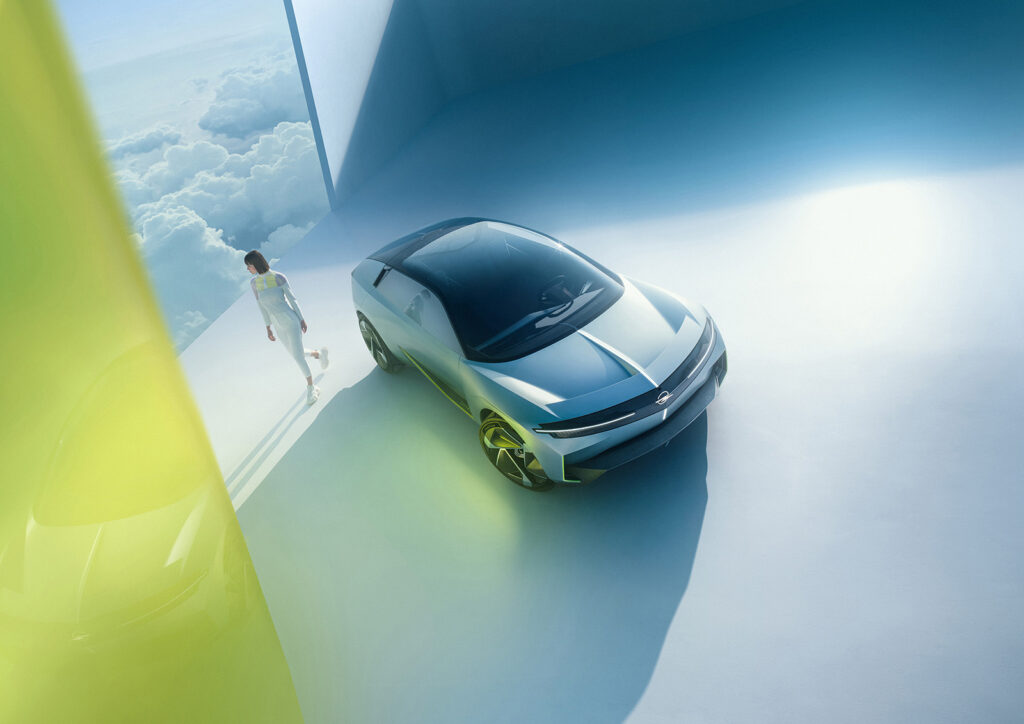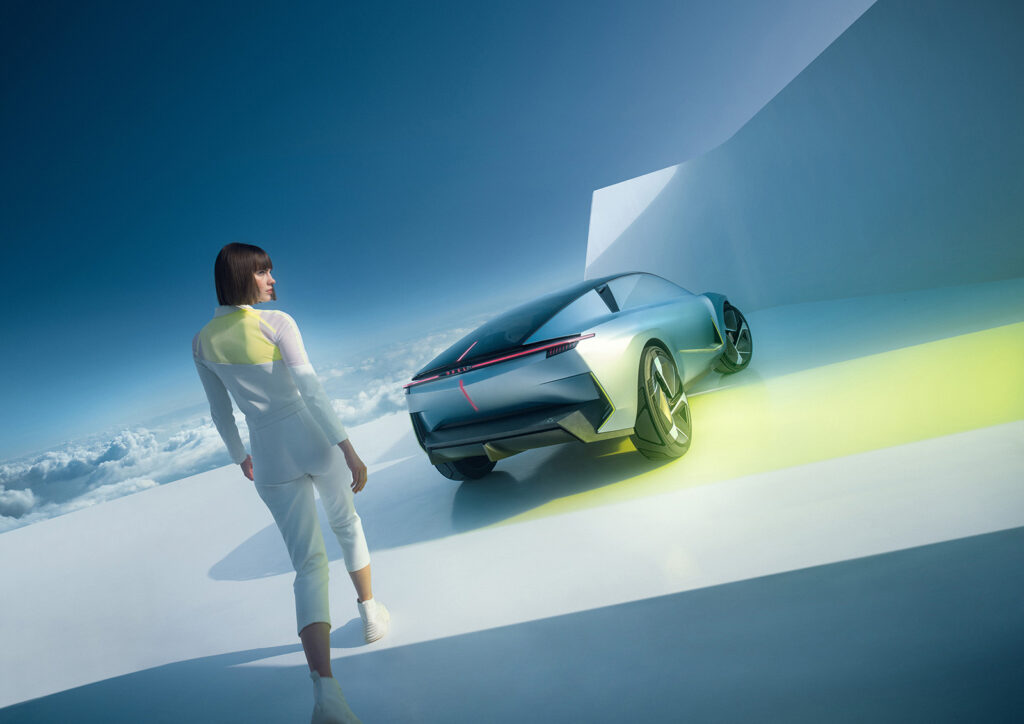![Opel_522530[12]](https://avondhupress.ie/wp-content/uploads/2023/08/Opel_52253012-696x492.jpg)
Opel has fully unwrapped its new concept car, following a series of teasers. With an ultra-modern exterior design, the Opel Experimental gives a clear vision of the German brand’s design direction of the future, boasting cutting-edge aero-efficiency features, a spacious, illuminated interior, and a next-generation head-up display.
The fully electric crossover, equipped with all-wheel drive, will celebrate its world premiere at this year’s IAA Mobility in Munich (September 5 to 10, 2023), where it will surely turn heads and introduce a new audience to Opel’s vision for sustainable mobility.
“Our new Opel Experimental gives a more extreme interpretation of our Bold and Pure design philosophy. It gives shape to our vision of the future. Many of the elements of its design and the mindset behind it will be visible in future production vehicles. The exterior design delivers an optimised aerodynamic performance in combination with a stunning silhouette while the interior offers an immersive and emotional user experience,” said Mark Adams, Vice President Design.
The absence of chrome in the sleek silhouette is apparent, where exterior lighting and bold contrasting graphics add personality and sophistication. At the front, the new illuminated Opel Blitz sits proudly at the centre to create the signature Opel Compass, a defining element of Opel’s design philosophy.

It is flanked by elongated wing signature lighting on the horizontal axis, while the illuminated vertical crease adds further drama. Around the front compass sits the next-generation 4D Opel Vizor; the extra dimension is the addition of advanced sight safety technologies including sensors, radar and camera systems.
The Opel Experimental’s dramatic tapering profile has a bold and pure design with clean surfacing to enhance its stunning presence. Even traditional wing mirrors have made way for fully integrated 180-degree cameras on the C-pillars while sharp, muscular wheel-arch blisters emphasise the confident stance.
The design cue is repeated at the rear, featuring a distinctive compass signature braking light created by edge lighting technology and sophisticated glass transparency. Bold Opel lettering, instead of the Blitz logo is featured delivering a robust, solid stance.
The Opel Experimental concept car also offers clever, optimised aero solutions. Aero-flaps at the front and rear increase aerodynamic efficiency, as does the rear end diffusor. It extends or retracts depending on the prevailing driving situation. The tyres, developed in cooperation with Goodyear, are made from recycled rubber and sit on 3-zone Ronal wheels with an active feature to increase aerodynamic efficiency even further.
While the exterior dimensions put the Opel Experimental in the compact C-segment the interior boasts D-segment spaciousness, enabled by the liberation of space (space detox). The steering wheel folds away seamlessly when not required. This is made possible by the steer-by-wire system, which further reduces weight by eliminating mechanical steering components.

Elsewhere, the lightweight adaptive seats combine a lean but durable structure with 3D mesh-technology fabrics designed to deliver the outstanding seating comfort that customers have become accustomed to from Opel vehicles.
The detox approach is continued with the Pure Experience onboard. Drivers can personalise the information according to their needs on the slim Tech Bridge, a new interpretation of the Pure Panel seen in current Opel models. Instead of conventional screens, information or entertainment is presented using augmented projection technology supported by artificial intelligence and natural voice control. The floating, transparent Pure Pad sits ahead of the front armrest. It can be configured according to the driver’s personal preferences, thus allowing instant access to the most frequently used controls.
Electrochromic fabrics immerse occupants in atmospheric light that not only create a perfect environment for well-being, they also have functional attributes; when a vehicle enters the blind spot, a warning appears in the door insert as well as on the head-up display thus providing additional safety for occupants and other road users.
With its focus on showing a clear vision for the brand, the Opel Experimental continues the long and successful tradition of concept cars “made in Rüsselsheim”, a tradition that started in 1965 when Opel became the first European brand to present a design study in the form of the legendary Experimental GT.









